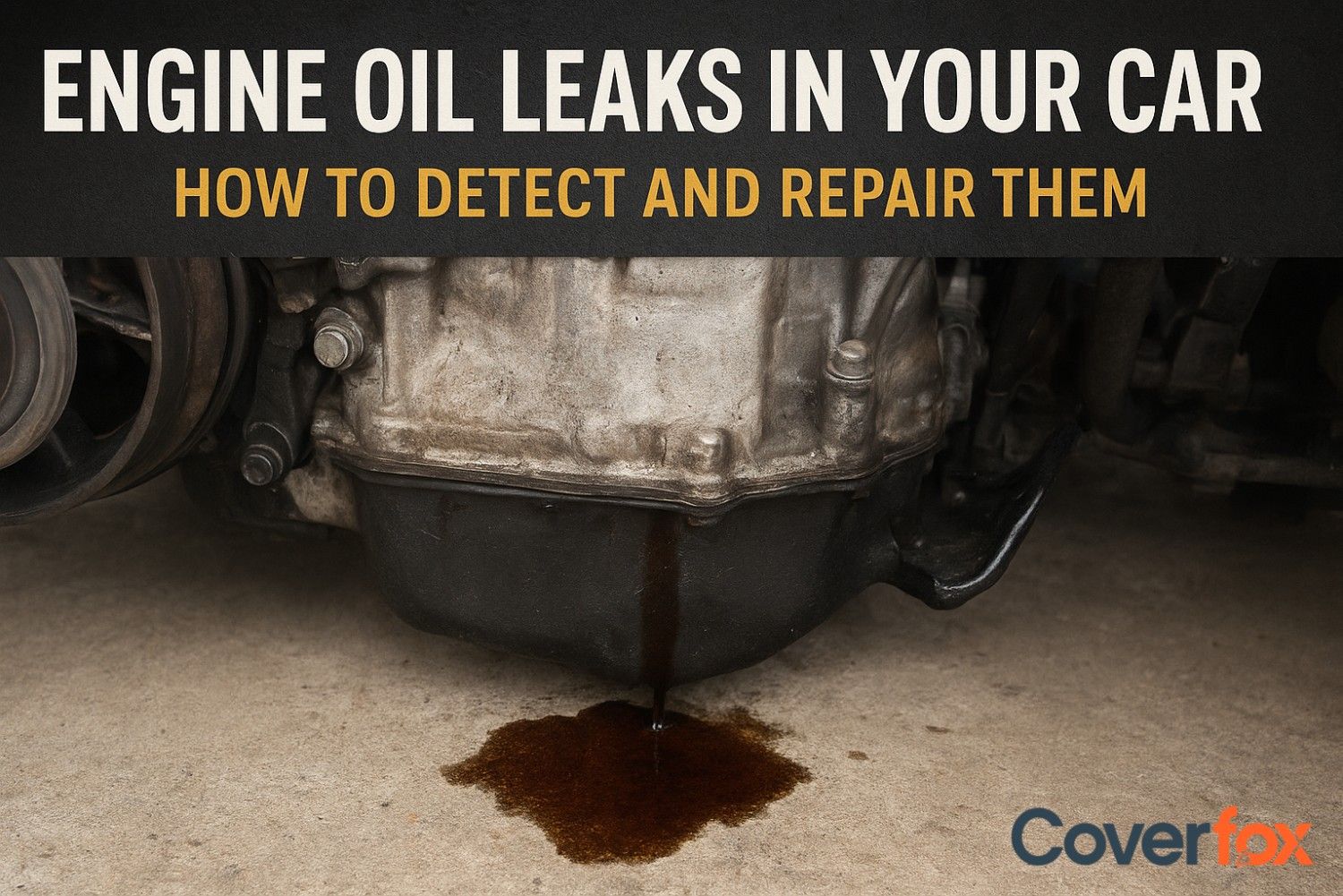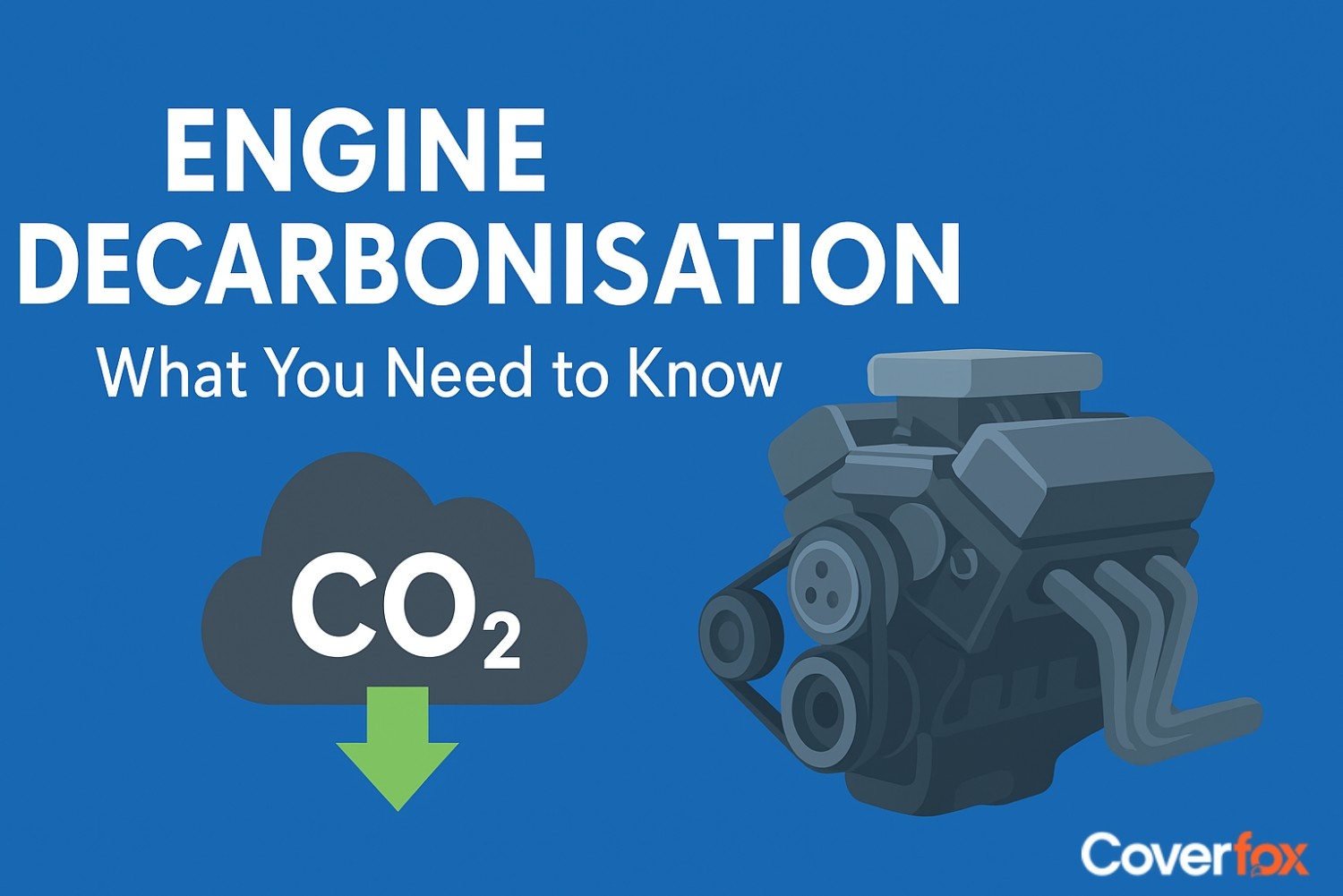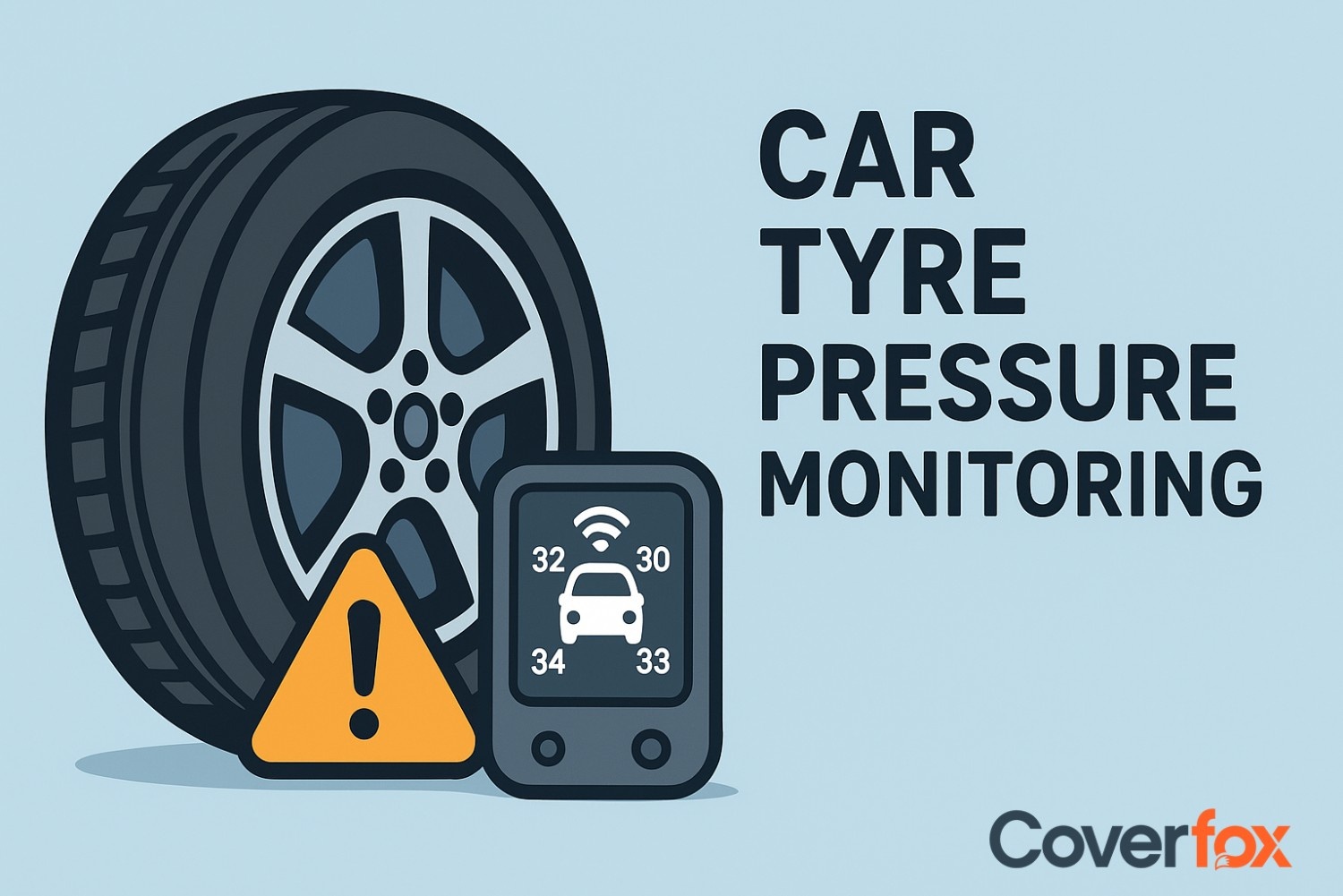Oil leaks from the engine are a very common problem that causes significant damage to the engine and may result in hefty repair costs if not addressed soon. The early detection of oil leak signs, awareness of the causes of oil leak, and prevention measures ensure the good health of your vehicle.

This article enlightens readers on how to detect oil leaks from engines, the causes, and methods of prevention.
What is an Engine Oil Leak?
An engine oil leak occurs when oil escapes from the engine due to worn-out seals, gaskets, or damaged components. This can lead to low oil levels, reducing lubrication for engine parts and potentially causing overheating or severe engine damage. Detecting and fixing leaks early is essential to maintain engine performance and preventing costly repairs.
Signs of Engine Oil Leaks
Recognising the early signs of an engine oil leak can prevent further complications:
- Oil Spots Under the Vehicle: Dark brown or black puddles beneath your car indicate a possible oil leak.
- Burning Oil Smell: A distinct burning odor may suggest oil dripping onto hot engine components.
- Low Oil Levels: Consistently low oil levels upon inspection can signify a leak.
- Engine Overheating: Insufficient oil can lead to overheating due to inadequate lubrication.
- Blue Smoke from Exhaust: Burning oil within the engine emits blue smoke from the exhaust.
Common Causes of Engine Oil Leaks
Knowing what commonly causes oil leaks can help in making proper diagnosis and repair:
Worn-Out Gaskets and Seals
Damaged Oil Pan
Faulty Oil Filter
Loose or Damaged Oil Drain Plug
Overfilled Oil Reservoir
Due to age, engine gaskets and seals may wear out and break, causing leaks.
Road debris might damage the oil pan and cause leaks.
A leaky or faulty oil filter allows the leaking of oil.
Oil can leak when the plug is either loosely fitted or damaged.
The excessive pressure developed by excessive oil causes leaks through seals and gaskets.
Oil Leak Diagnosis
To determine where the oil is leaking from, one must follow a logical inspection procedure:
1. Visual Inspection
Look for oil stains or wet spots in the engine bay and undercarriage.
2. UV Dye
Add a UV-reactive dye to the engine oil to trace leaks under UV light.
3. Cardboard Test
Place cardboard under the engine overnight to identify dripping oil locations.
4. Check Oil Levels:
Monitor oil levels regularly; a sudden drop may indicate a leak.
Preventing Engine Oil Leaks
Oil leakage can be prevented by carrying out preventive measures such as:
Regular Maintenance
Quality Parts
Proper Installation
Avoiding Overfilling Oil
Monitor for Wear and Tear
Maintenance of the seals is required through scheduled oil changes and inspections.
Use high-quality gaskets, seals, and filters for replacements.
Components like the oil filter and drain plug should be installed correctly.
Maintain the oil at a recommended level to avoid overpressure.
Regularly inspect for signs of wear and address issues promptly.
Addressing Engine Oil Leaks
If an oil leak is detected, consider the following steps:
Consult a Professional Mechanic
Replace Faulty Components
Clean the Engine Bay
Monitor after Repairs
Seek expert diagnosis and repair to prevent further damage.
Damaged gaskets, seals, or filters should be promptly replaced.
Remove oil residues to prevent deterioration of rubber components.
Regular checks for signs of new leaks after repairs.
Cost of Repairing Oil Leaks
The cost of repairing an engine oil leak depends on the source and severity of the leak, as well as the car model. Minor leaks from gaskets or seals may cost around ₹1,500–₹5,000, while more serious leaks involving engine components or oil pans can range from ₹5,000–₹15,000 or more. Labour charges and the use of genuine parts can also influence the total cost. Regular maintenance can help prevent major leaks and reduce repair expenses.
Bottom Line
For a vehicle to be functional and long-lasting, the leaks in the engine oil needs to be detected early in advance. Regular maintenance combined with quality parts can really help prevent your engine from suffering the adverse effects of the oil leak. Read more about car insurance on Coverfox and make informed decisions.
Also Read:
Is Engine Failure Covered Under Car Insurance?
Keep Your Car's Engine Safe During the Monsoon
Multi Point Fuel Injection (MPFI) in Vehicles
Frequently Asked Questions
How to detect engine oil leak?
You can detect an oil leak by checking for oil spots under your car, noticing a burning oil smell, blue smoke from the exhaust, or a sudden drop in engine oil levels on the dipstick.
Can an engine oil leak be repaired?
Yes, most engine oil leaks can be repaired. The fix depends on the cause — from tightening loose bolts to replacing gaskets, seals, or the oil pan.
Is it safe to drive with an oil leak in the car?
No, it’s unsafe to drive with an oil leak. Low oil levels can cause engine overheating or even complete engine failure if the leak worsens while driving.
How many times should I check my oil level?
It’s ideal to check your oil level once every two weeks or before long drives to ensure your engine always has sufficient lubrication.
What happens if I ignore an oil leak?
Ignoring an oil leak can lead to engine damage, reduced performance, and costly repairs, as the lack of lubrication causes excessive friction and overheating.
Does car insurance cover engine oil leakage repairs?
Standard car insurance usually does not cover engine oil leaks unless the damage results from an accident. However, some comprehensive policies with engine protection add-on covers may include such repairs.
What are the most common symptoms of an oil leak?
Common signs include oil puddles under the car, a burning smell, smoke from the engine bay, a low oil pressure warning light, or unusual engine noise.





